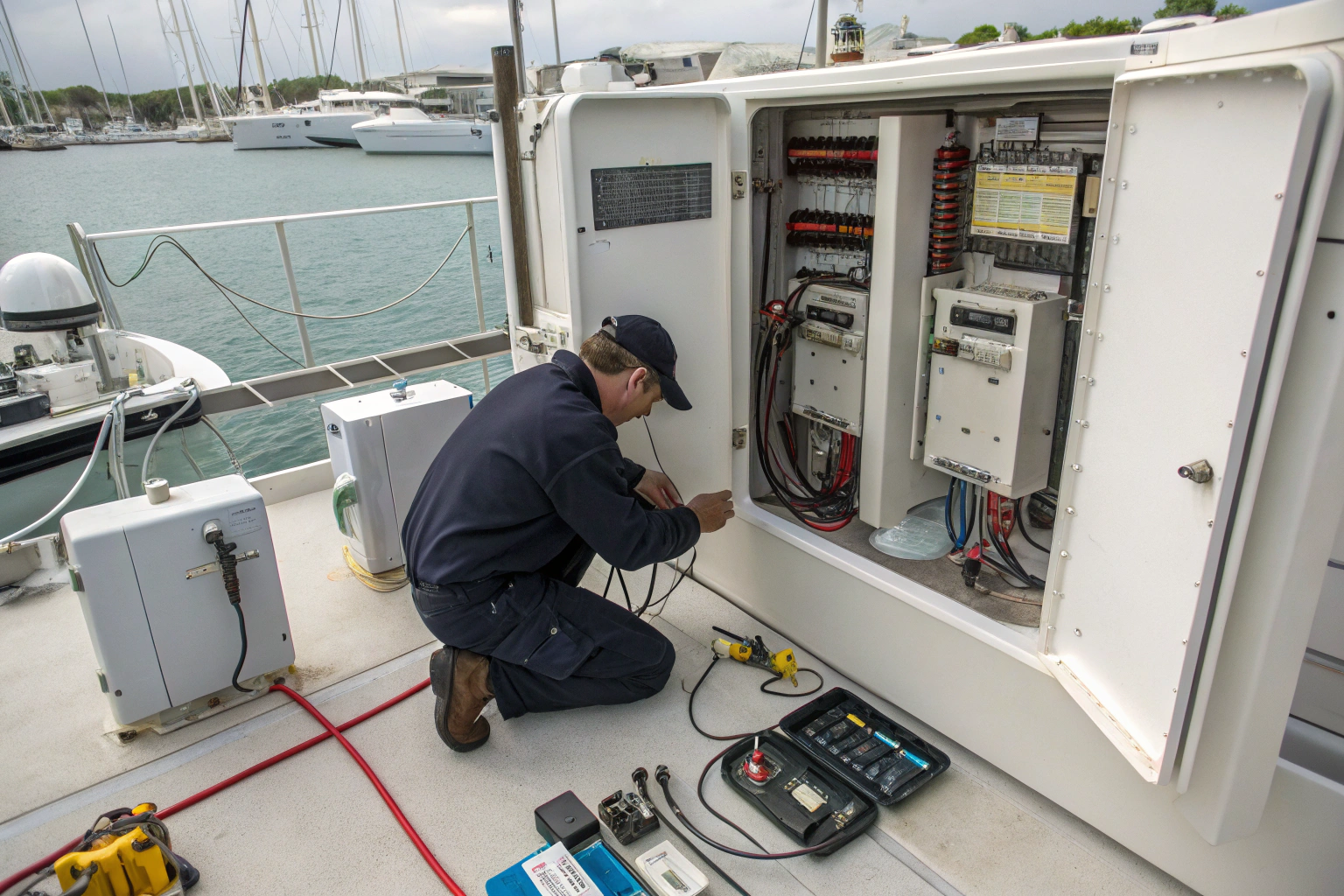A climbing wall is an artificially constructed wall with grips for hands and feet, usually used for indoor climbing, but sometimes located outdoors. Some are brick or wooden constructions, but on most modern walls, the material most often used is a thick multiplex board with holes drilled into it.
Why Your Boat’s Electrical System Fails — Even If It Was 'Professionally Installed’
You’ve just had your boat’s electrical system professionally installed. You’re excited to hit the water with everything working perfectly — but then, disaster strikes. Suddenly, your inverter shuts down, the chartplotter freezes, or the battery system fails when you need it most.
It’s frustrating, but it happens more often than you think. Even the best installations can fail due to overlooked details, poor component choices, or miscalculations. Here’s why that happens and what you can do to prevent it.
1. Underrated Components — Overlooked During Design
A professional installation doesn’t always mean a “perfect” one. Sometimes, essential components like circuit breakers, fuses, or even inverters are rated too low for the actual power needs of the boat. Marine systems can demand more than expected — especially during peak load times (e.g., when starting an engine or running multiple devices simultaneously).
Solution: Ensure that every component is rated for marine use and high peak loads, and always leave room for future upgrades or expansion.
2. Wiring Mistakes — Too Small, Too Long, or Too Cheap
One of the most common but often overlooked mistakes is choosing the wrong gauge for the wires. Cables that are too thin, too long, or of poor quality can lead to voltage drops, overheating, and inefficient power transfer. Even if the wires look fine, the wrong material or bad connections can quickly create problems.
Solution: Always use marine-grade wire and ensure the correct gauge based on the length of the wire runs. Don’t skimp on quality — it pays off in the long term.
3. Lack of Cooling or Ventilation
Inverters, chargers, and battery banks need proper ventilation. Without it, they overheat, degrade quickly, and fail when you least expect it. Professionals sometimes forget to properly vent battery compartments or don’t account for airflow around heat-sensitive components.
Solution: Make sure all electrical components have adequate ventilation and airflow. Install fans or vents if necessary, especially in enclosed spaces where heat can accumulate.
4. Poor Battery Management Systems (BMS)
A poorly designed or incompatible Battery Management System (BMS) can cause a battery to underperform or, worse, fail prematurely. Sometimes, the BMS doesn’t properly balance cells, leading to capacity loss, overcharging, or undercharging.
Solution: Ensure you have a properly sized and compatible BMS that is tailored to your battery chemistry (lithium, AGM, etc.) and regularly monitor the system’s performance.
5. Incorrect Grounding and Electrical Protection
Another issue that can lead to failure is improper grounding. Without proper grounding, systems are more vulnerable to electrical surges or lightning strikes. A poorly grounded electrical system can cause components to short-circuit or even lead to dangerous electrical fires.
Solution: Double-check that the boat’s grounding system is correctly implemented and all sensitive equipment is properly protected against power surges.
6. Lack of Regular Maintenance
Even the most professionally installed systems need regular maintenance. Corrosion, wear and tear, and general aging can degrade the performance of your electrical system over time. For example, saltwater exposure can corrode connectors and cause power loss.
Solution: Conduct periodic inspections to clean and check connectors, replace worn-out parts, and recalibrate systems as needed. Don’t wait until something breaks to check it!
Don't Let Your Boat’s Electrical System Fail You
Your boat’s electrical system is its heart. Whether you’re cruising the coast or anchored for the night, you need a reliable setup. A professional installation is just the first step — proper design, quality components, ventilation, grounding, and regular maintenance are all critical to keeping your system running smoothly.
If you’re unsure about your current system, don’t wait for a failure to happen. At Smarteye, we specialize in diagnosing and optimizing electrical systems. Contact us for a full inspection and ensure your boat stays powered up — safely and reliably.
